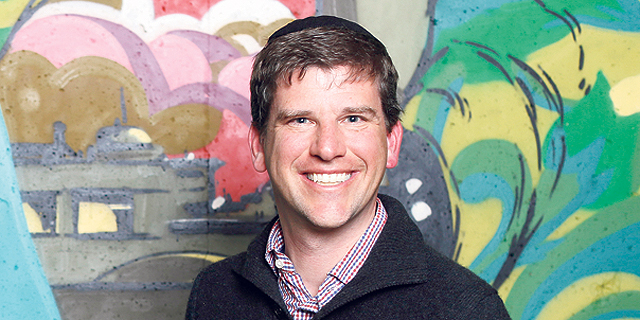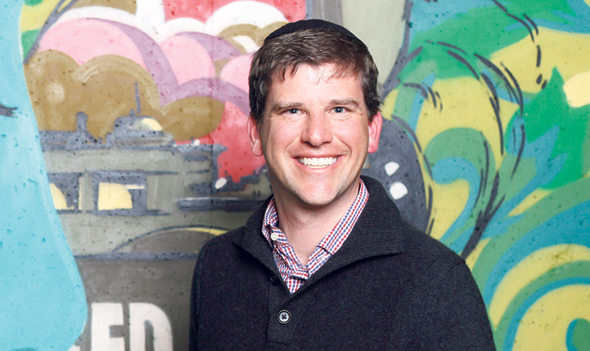
Opinion
My Core Investment Thesis: Long Humanity
Investing in WeWork was a bet on a risky notion that blood was flowing in Facebook and Twitter feeds, in Reddit and 4Chan, writes venture capitalist Michael Eisenberg
Baron Rothschild once said the time to buy real estate is ”when there is blood in the streets.” The core insight of this investment maxim is buy low, when everyone is running, because there is blood in the streets. Well, there is now blood in the streets of humanity and it is time to invest.
For daily updates, subscribe to our newsletter by clicking here.
The Atlantic ran a long article about the “Sex Recession,” suggesting that younger people are having less sex. Based on a Survey Monkey survey, Axios is reporting that young people prefer their phones to human interaction but older ones still prefer human beings. Social media has provided fertile ground for a style of conversation that has shown a less positive side of our humanity. I spoke two weeks ago at a conference on Virtual Identity and listened to Stanford Professor Jeremy Bailenson talk about the lack of rules in Virtual Reality. It reminded me of the famous admonition in Plato’s Republic about the Rings Of Gyges:
"Suppose now that there were two such magic rings, and the just put on one of them and the unjust the other; no man can be imagined to be of such an iron nature that he would stand fast in justice. No man would keep his hands off what was not his own when he could safely take what he liked out of the market, or go into houses and lie with any one at his pleasure, or kill or release from prison whom he would, and in all respects be like a god among men.
If you could imagine any one obtaining this power of becoming invisible, and never doing any wrong or touching what was another's, he would be thought by the lookers-on to be a most wretched idiot, although they would praise him to one another's faces, and keep up appearances with one another from a fear that they too might suffer injustice."
Over the last two years, in every one of tens of speeches I have given to college students, I told them that my core venture capital investment thesis for the next decade is to invest in humanity. It is the antidote to two decades of investment in social media. While social media has peaked, the next technological revolution and investment trend is humanity. Talking. Touching. Hugging. Caring. Educating. Helping. Succeeding together. Healing.
When I invested in WeWork some 6 years ago, people mockingly called it a real estate investment. It wasn’t. There was no blood in the streets of downtown Manhattan, San Francisco or London. So it was not a good time to buy or rent real estate. Investing in WeWork was a bet on a risky notion that blood was flowing in Facebook and Twitter feeds, in Reddit and 4Chan. It was a bet that people want to see each other through glass windows, interact in public places, hang out, help and interact with each other, physically and communally. Human beings actually crave true community, communities of help and success, not online tribes of diatribe and voyeurism.
Humanity and true community must necessarily be diverse. You must be exposed to the other in order to tolerate him or her and so that you do not sink into your own view of the world. You need to not agree, nor acquiesce to someone else’s views, mores or demands but you must know it, see it and touch it in order to both disagree and learn to live with it or alongside it. You must confront it and look it in the face. You cannot live in a Ring of Gyges. Social Media has become the Rings of Gyges. While social media certainly has benefits in connecting geographically dispersed friends, family and enthusiasts around the globe in communities such as cycling or Deviant Art (not bad like it sounds), It has primarily become a homogeneous echo chamber and not a particular polite one. The algorithms of these big platforms feed you what keeps you on the platform, which for most people is showing you more of what you want to see. Its feeds’ shelter you from inconvenient truths. Its data-driven advertisements are perfectly tuned to feed you a diet of things you are sure to like or are hopefully similar to what you will like or that prey on your weakest resolve. This data-driven attack on our feeblest senses, our individual achilles heels, is one of the reasons, I stopped investing in adtech years ago. Adtech is the fuel of social media, funding its reach and amplifying its poisonous tentacles. At its core, Adtech is a fundamental disbelief in the power of true Humanity, of what should make us different as human beings. Adtech is a manipulator of our most base animal instincts, those that ferment in the cozy confines of a closed-minded community and fester behind anonymous and acrimonious talkbacks and comments. In fact, since I got off Facebook some four months ago. I am healthier and less unnerved. My thinking has become clearer. It is also true that people prefer devices and screens for transactional interactions. More people want to book travel online and that will and should persist. They want to order groceries online and books and increasingly clothing. These behaviors are going only in one direction. However, these are transactions and not interactions, experiences, work or health. To be self-honest, it is also critical to point out that ads on the internet and mobile media play an important role in jumpstarting and fueling the growth of many of these deeply human investments. However, ads cannot sustain that growth forever. That is playing out in front of our eyes right now (although when I first drafted this post, social media stocks were 30% higher). Only a positive, long-term human experience and a brand built on repeatedly serving customers with humanity can build long-term businesses. Building on the success of WeWork and the vein of humanity it has tapped into, our recent investments have been about Humanity. Saving lives on the roads, spreading love and competence in music, making insurance work for people and the greater good, increasing access to diagnostic healthcare (stealth), increasing financial safety nets for the lower socio-economic rungs of society (stealth) and making education more accessible. They also have a fascinating commonality in that they bring people together. Physical gatherings turn out to be a great way to mobilize these communities and customers. I think this is our responsibility as investors in technology and in technological change. It is also a great investment strategy, and the best way to deliver returns to our limited partners. It turns out that humans, our customers, want humanity. The vast majority of customers are driven to prefer the services that serve humanity (as long as we are not investing in vice businesses). This craving for human-ness is increasing as uncertainty in the world and the economy is increasing. Technology can be a positive force. In fact, I deeply believe it is a positive force but only when it is enhancing humanity and not encasing it, limiting it, feeding it what it wants to hear. We will continue to invest in that productivity for businesses and individuals. Some of our investments will truly do good while doing well and others will simply increase productivity. The productivity increases of technology are a force for people to be freed to do more good, to be more human, and not waste away in front of reality television or Candy Crush. The more he sees his screen and not his fellow man or woman, the less he is encumbered in his animalism and the more he will find people who reinforce his biases and presupposed notions. Moreover, as the Atlantic averred, the more he loves his/her digital devices, the less sex he or she will have. That is definitely not good for the future of humanity.
No Comments Add Comment